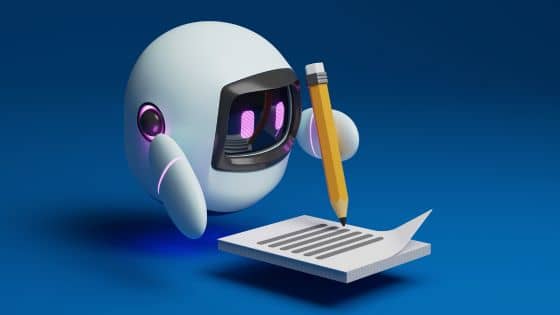Embracing artificial intelligence (AI) is a transformative step for businesses and individuals alike, enabling innovative solutions and enhancing productivity across various fields. If you aren’t sure where to start with this, here’s a guide on how to start using AI more effectively, whether you’re a business owner, a developer, a researcher, or simply an enthusiast keen on exploring the potential of this technology.
Educate Yourself
Begin by understanding the basics of AI. Familiarize yourself with concepts like machine learning, deep learning, natural language processing, and computer vision. Numerous online platforms offer free and paid courses on AI, catering to different proficiency levels. Websites like Coursera, edX, and Udacity provide in-depth courses taught by leading experts in the field.
Identify Use Cases
Determine how AI can benefit your specific needs or business goals. AI applications are diverse, ranging from data analysis and automation to customer service chatbots and predictive analytics. Identify areas in your personal or professional life where AI can streamline processes, enhance decision-making, or offer innovative solutions.
Explore AI Tools and Platforms
There are several user-friendly AI tools and platforms designed for beginners. Google’s TensorFlow and Keras, Microsoft’s Azure Machine Learning, and Amazon SageMaker are popular platforms that offer resources, tutorials, and pre-built models to kickstart your AI projects. These platforms provide a robust foundation for both experimentation and deployment. You may want to explore more specific AI tools that cater to your particular devices. This could be your phone or computer. Fortunately, there are very handy guides out there that provide information on the most powerful AI-driven apps for iPhone devices and Mac computers. Uncover the list to see what is most suitable for you.
Start with Small Projects
Embarking on small AI projects allows you to apply your knowledge and gain practical experience. Choose manageable tasks, such as image recognition, sentiment analysis, or recommendation systems, and work on implementing AI algorithms for these projects. Learning by doing is an effective way to grasp the nuances of AI development.
Collaborate and Engage
Participate in AI communities and forums to connect with like-minded individuals and experts. Websites like GitHub, Kaggle, and Stack Overflow host vibrant AI communities where you can collaborate on open-source projects, ask questions, and learn from others’ experiences. Engaging with the community can accelerate your learning and problem-solving skills.
Stay Updated
The field of AI is constantly evolving, with new research papers, algorithms, and tools being released regularly. Stay updated with the latest trends, breakthroughs, and best practices by following reputable AI publications, research journals, and industry blogs. Continuous learning is essential in this fast-paced domain.
Ethical Considerations
Understand the ethical implications of AI, including biases in algorithms and privacy concerns. Responsible AI development involves ensuring fairness, transparency, and accountability in your projects. Familiarize yourself with ethical guidelines and best practices to develop AI solutions that benefit society ethically and responsibly.
Collaborate with Experts
If you’re dealing with complex AI projects or integrating AI into critical business processes, consider collaborating with AI experts and data scientists. Hiring professionals or partnering with AI consultancy firms can provide you with insights, strategies, and solutions tailored to your specific requirements.
Experiment, Fail, Learn, Iterate
AI development is iterative. Don’t be afraid to experiment, fail, and learn from your mistakes. Each failure is an opportunity to understand the technology better. Iterate on your projects, refine your models, and continuously improve your AI solutions based on feedback and outcomes.






